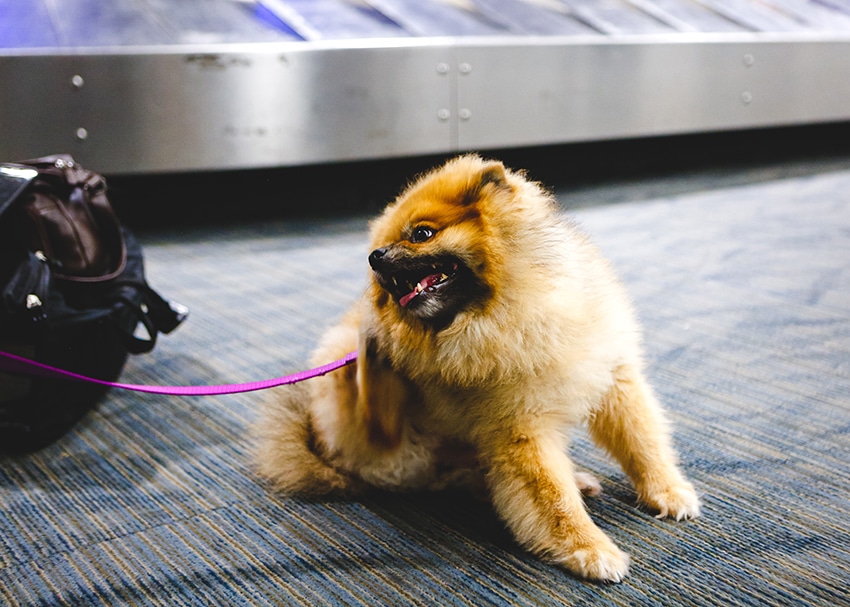Your pooch has just developed an intense itch. You’ve searched every strand of their fur and can’t find a single flea, so why is your pup scratching too intently?
Itching, also called Pruritis, is a common sign of skin disorders in our canine companions. The most common cause of Pruritis is allergic skin diseases through bug bites, and stings are also guilty.
It’s incredibly distressing to see your dog in such discomfort but don’t reach for the apple cider vinegar just yet.
Read on for our comprehensive deep dive into your fur baby’s itch and how to soothe them.
Common Causes for Excessive Itching in Dogs
It’s normal for your fur baby to have a scratch behind their ears once in a while, but if they start showing signs of intense Pruritis, then something is wrong so let’s delve into the causes.
Flea Allergy Dermatitis
Many pooches are allergic to flea saliva, and even just a single bite can set off an incredibly pruritic reaction in their skin. You can check your dog’s fur using a flea comb or patting its skin with a damp paper towel and checking for reddish discoloration, which indicates flea dirt.
Even if you don’t find any evidence, your dog could have been bitten by just one, which is causing their discomfort. Some of the signs that your dog may have flea allergy dermatitis (FAD) are hair loss, localized swelling, hot spots, and occasionally even infections.
Atopy
Atopy, also known as atopic dermatitis, is due to allergies to environmental, airborne allergens that penetrate a damaged or defective skin barrier. Atopic pooches will have intense Pruritis, particularly on the face, armpits, groin, and toes, and you may notice reddish-brown saliva stains on the itchy spots. Clinical signs may worsen with seasonal changes if the allergy is to pollens or molds.
Food Allergies
Arguably one of the most common hypersensitivities in our canine companions. The immune system overreacts, causing digestive or skin signs. Vomiting and diarrhea are relatively common though the most likely skin-related signs are itchy paws or ears.
Contact Dermatitis
One of the least common types of dermatitis is from direct contact. These can develop into practically anything, including pyrethrins in flea collars, pesticides, and other household chemicals. Skin irritation is generally confined to the points of contact, usually the feet or stomach.
Sarcoptic Mange Mites
The parasitic mite, Sarcoptes scabiei, burrows under the skin’s surface in healthy pooches and can even affect humans. The mites cause intense itching, and your pooch will constantly chew and scratch, causing hair loss and eventually thickening and darkening the skin too. Contagious and zoonotic (affecting humans), rapid treatment and prevention are essential.
Stings & Bites
Sudden localized redness, swelling, and intense itching can be an indication that your dog has just been bitten or stung by a bug like a bee or an ant.
If your dog has started an intense bout of scratching, then the first thing that springs to mind is – fleas! They aren’t the only cause. Other pesky parasites and allergies are common causes of intense itchiness in our fur babies. Allergies are arguably the most difficult to diagnose and treat, but your DVM will work with you to provide your pooch with the best care available.
What can I do to relieve my dog’s itching?
Luckily there are a few things we can do at home that can help to soothe your pooch’s itch. We’ve put together the following list of at-home tricks to relieve your pup’s irritation:
Shampoo
There’s a huge number of shampoos on the market, but you should select one that is hypoallergenic and soothing. Ideally, select a shampoo without artificial dyes or fragrances.
Hydrocortisone cream
Steroid creams are low potency topical creams that soothe itchiness. Even though they’re available without a prescription, you should discuss their use with your veterinarian before using them on your pooch.
Antihistamines
Though not licensed for dogs, some human antihistamine medication can be given to dogs under veterinary supervision.
One such medication is Benadryl. As they’re human medicines, it’s possible to overdose on your pooch. Only give human medication after consulting with your DVM.
There are a number of things you can try to soothe your pooch’s itch. Lots of shampoos are marketed as being “soothing” and for sensitive skin, but you should select products that have a small number of quality ingredients, without artificial fragrances or dyes.
Medicated creams and antihistamines are also an option but always discuss their use with your veterinarian in the first instance.
How to make sure it’s not fleas?
If you’re not sure about the cause of your dog’s itching and want to rule out fleas, there are a couple of things you can try.
- Taking a clean flea comb, you can brush through your dog’s fur and check for flea dirt or even fleas themselves. The presence of living fleas with dirt indicates an active infestation.
- Using a damp paper towel to wipe down your dog’s fur, you may pick up some flea dirt which will appear as reddish staining.
What to do if your dog is itching because of fleas?
If it turns out fleas are the culprit for this bout of intense Pruritis, then there are a few steps you can take to send these pesky parasites packing.
Shampoo
Medicated flea shampoos are available over-the-counter and can help to reduce the amount of fleas on your pooch.
Flea Comb
While bathing your dog with a medicated shampoo, you can enhance its efficacy by using a flea comb to remove more fleas than bathing alone.
Topical or Oral Medication
In order to provide sustained treatment and prevention of flea infestation, the use of topical and/or oral medications such as those outlined in some of our other articles can be used.
Environmental Treatment
Treating your pooch alone isn’t enough; you also need to eliminate fleas from their environment, as the eggs will perpetuate the cycle. Laundering bedding will help to remove the burden on your dog’s environment.
Using a combination of all of the above options will provide your dog with the best relief from their flea-induced itching. A multi-modal approach to treating the environment and not just your pooch will provide lasting protection to your pooch against these pesky parasites.
When to see a vet?
Sudden and intense itching for a short period of time is likely nothing to be concerned about, particularly if you can’t find any specific cause or if there’s just minor swelling due to a bug bite.
However, if the swelling persists or is on the face or throat, then you should definitely seek veterinary help.
Other indications that your dog should be seen by a veterinarian include broken or bleeding skin, foul smell, hair loss, or intractable scratching.
Final Woof
There are a lot of possible causes of sudden itching in our canine companions, and we’ve gone through them in this article.
After reading this article, you’re equipped to deal with any of the causes of intense itching, including treating and preventing further outbreaks. Allergies are the most common causes of itching and self-mutilation in our fur babies, but there are many ways to help combat these pruritic episodes.
Always have a chat with your DVM before using any human medications on your dog.


